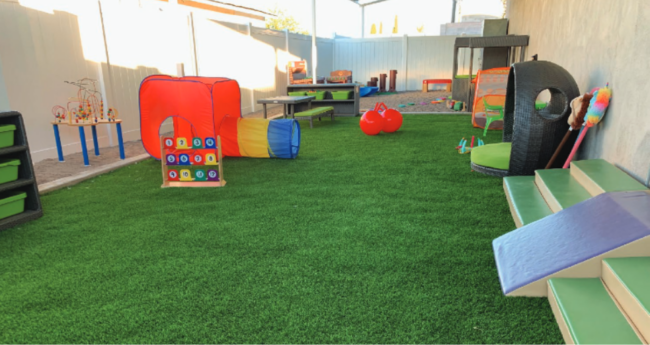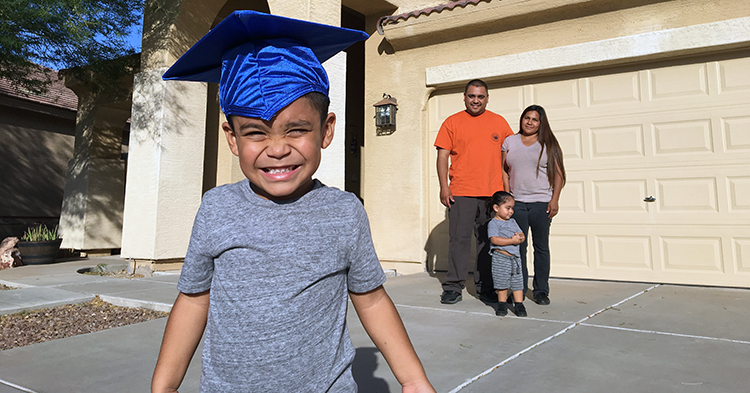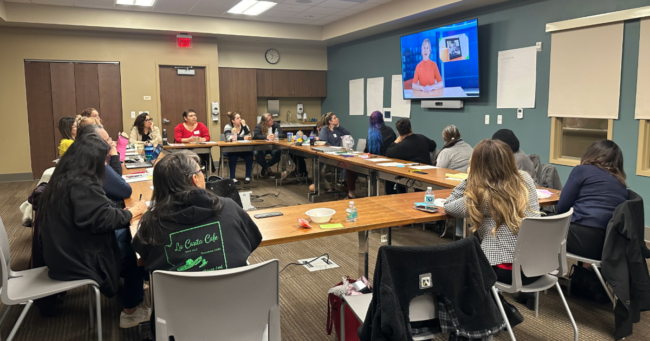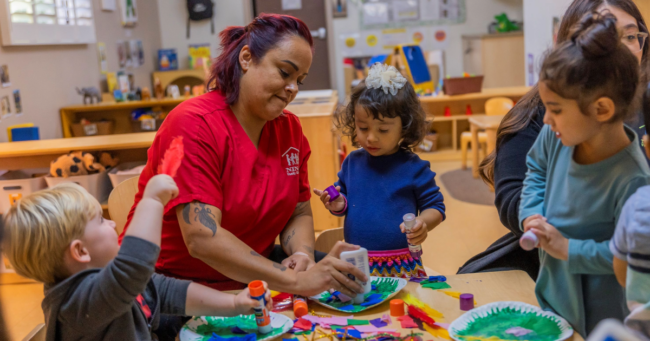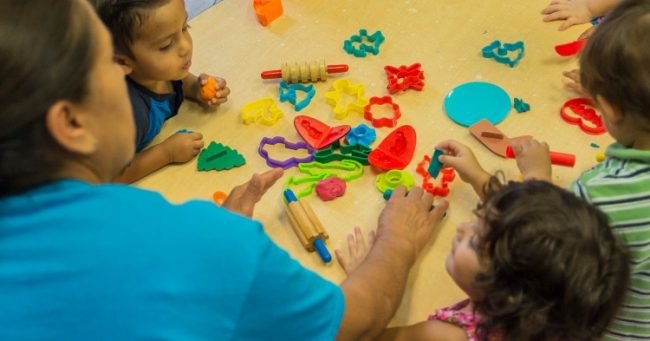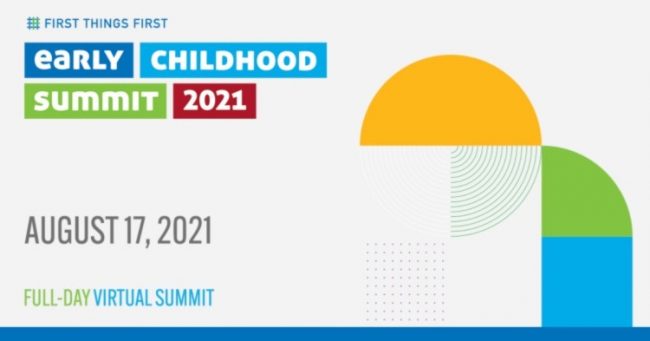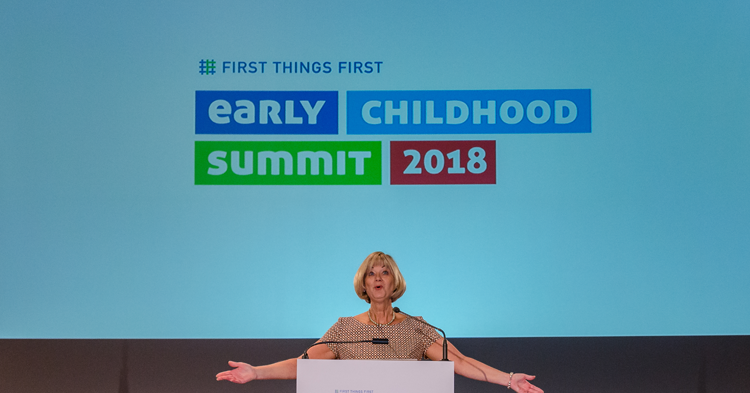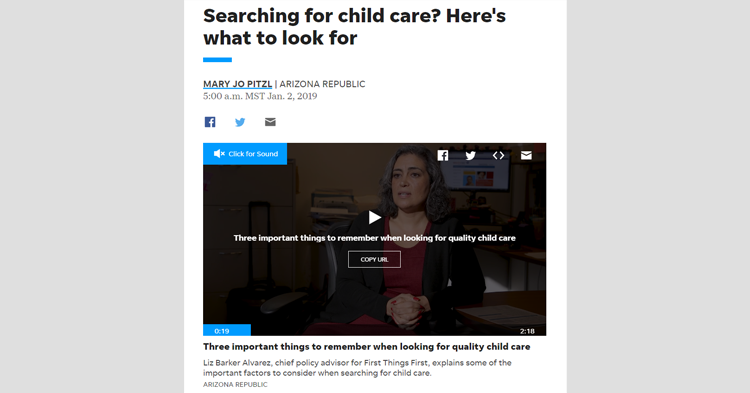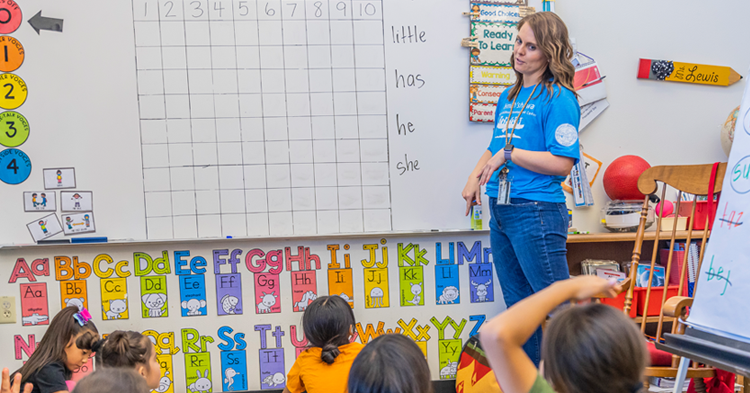
For Shari Elkins, increasing investments in early childhood in her southeast Arizona community begins with not asking for anything.
As the First Things First Graham/Greenlee Regional Director, Elkins has served on local panels, grant review committees and advisory boards in her community. She’s been a consistent resource on early childhood when businesses and organizations need information about the needs of young children in the community.
Graham and Greenlee counties are known for their copper, cattle and cotton, three of Arizona’s traditional five C’s that served a critical role in the state’s early days. And in these two counties, they are still strong. Freeport McMoRan’s copper mine in Morenci is the largest copper producer in all of North America and their mine in Safford is second.
“Back in 2008, I started serving on Freeport’s Community Partnership Panel as the early childhood rep,” Elkins said. “I wasn’t asking for anything, I was talking about the importance of early childhood and being flexible in different approaches to address the needs of young children in our region.”
School readiness equal workforce readiness
Over time, her approach and message has been the same: School readiness equals workforce readiness. Today, Elkins works closely with community partners across the region.
For example, she provides support to Eastern Arizona College in Thatcher as they’ve developed a vibrant early childhood education program that is creating a pipeline of certified early childhood educators. The FTF Graham/Greenlee Regional Council was a thought-partner and connector when Arizona State University began offering bachelor degrees in early childhood in partnership with Eastern Arizona College through its 2+2 transfer degree program. This allows Eastern Arizona College students to transfer their associate degree to ASU and qualify for a tuition reduction of about 40% and in most cases, graduate without student debt. In addition, the United Way of Graham and Greenlee Counties offer scholarships for participating students.
Planting the seeds of the importance of quality care and education continues.
“The FTF Graham/Greenlee Regional Council expanded access to child care and preschool opportunities in the region by leveraging partnerships with our local philanthropic organizations including the United Way of Graham and Greenlee Counties and Freeport McMoRan to increase the number of high-quality early care and education scholarships available in the region,” Elkins said.
She was referring to work with these partners that provides child care scholarships for low-income families who would not otherwise qualify for financial support to all Quality First sites in Graham and Greenlee counties.
“This would create a continuum of scholarship support through partnerships with DES and FTF,” Elkins said.
Fostering a healthy community
In another example, the Gila Valley Community Foundation began funding yearly kindergarten camps to provide preschool experiences for children in school districts with the highest poverty levels in the region who didn’t have the opportunity to attend preschool.
There’s also talks of additional collaboration with Mount Graham Regional Medical Center (MGRMC) in Safford, which has been a longtime supporter of the community’s early childhood efforts.
“We recognize the critical role that early childhood development plays in fostering a healthy and thriving community,” said MGRMC Chief Operating Officer Eric Neal. “From a healthcare perspective, a strong foundation in the early years leads to better overall health outcomes throughout a person’s life. High-quality child care provides a safe and nurturing environment where young children can learn, grow, and develop essential social, emotional, and cognitive skills.”
He added that the medical center is proud to support initiatives “that aim to build a robust system of quality child care options for families in Graham and Greenlee counties.”
Elkins is pleased with the way businesses and other organizations in her community are recognizing the importance of high quality early care and education.
“We don’t go to organizations and tell them, ‘This is what you need,’” she said. “I know I don’t have all the answers. But I love that after years of building relationships and sharing the message, they’re recognizing the early childhood experts in the community and our table is growing.”


